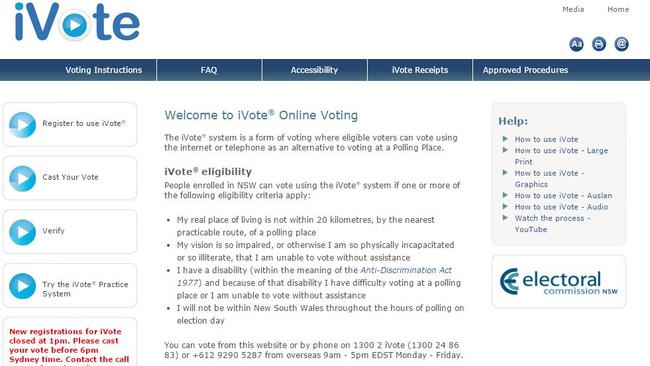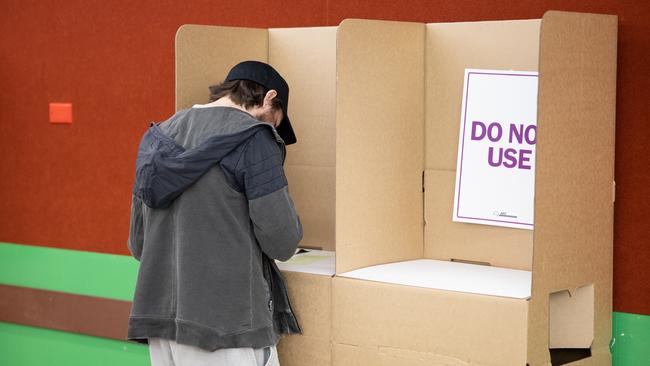Blind and low vision advocacy groups’ fury over removal of iVote
Vulnerable Australians with vision impairments have shared their furore over the ‘discriminatory’ scrapping of iVote.

NewsWire
Don't miss out on the headlines from NewsWire. Followed categories will be added to My News.
Blind and low vision advocacy groups have blasted the decision to limit voting services after the NSW Electoral Commissions (NSW EC) decommissioned iVote due to a technical bungle in the 2021 local elections.
The malfunction failed to count tens of thousands of votes in three council areas, with the costly error sending voters back to the polls.
Vision Australia’s lead policy advisor, Bruce Maguire said he’s been inundated with concerns from the community who are “disappointed, angry and upset” that they have been limited to telephone voting to cast their ballots.
“It’s one of the few examples I can think of, where a measure designed to promote the rights of people has actually been withdrawn,” he said.

First introduced in 2015, iVote had three arms including telephone assisted voting (which will be used in the upcoming election), automated telephone keypad voting, and internet voting.
Mr Maguire, who is blind, said there were privacy issues with telephone assisted voting.
He also noted it could take up to two and a half hours to vote below the line in the Upper House ballot paper through telephone-assisted voting, making the process “pretty well impossible”.
“We’re reliant on the other person on the other end of the phone and, if they’re not available, we can’t vote,” he said.
“It doesn’t replace the independence, the secrecy, and the verifiability (sic) we had with iVote.”
Blind Citizens Australia CEO Sally Aurisch blasted the move to not supply candidate lists in large print, audio, ex-text, or braille. She also slammed the unavailability of braille ballot papers.
The peak industry body boss said the move was “discriminatory”.
“While we understand that there may be logistical difficulties … treating the accessibility of important electoral information as optional … is discriminatory and denies us of our right to participate fully and equally in the electoral process,” she said.
“This is a stark contrast to the most recent Federal Election, during which the Australian Electoral Commission provided candidate lists and other resources in these formats.”

Mr Maguire called on a “stronger commitment” from all political parties to ensure the “fundamental rights” of all people with disabilities are protected.
“(We want to) vote independently, secretly and verifiably in the same way that everybody else takes pretty much for granted,” he said.
The NSW EC confirmed in March last year that iVote would not be used in the 2023 state election.
A statement released by the NSW EC acknowledged it was a “disappointing development” for the blind and low vision community, however they were “not confident” an updated system would be ready in time.
“The Electoral Commissioner determined this timing posed unacceptable risks to the conduct of the 2023 State election,” they said.
The Commission has commenced a review into technology-assisted voting, with input from advocacy groups like BCA, Vision Australia and Guide Dogs NSW. They aim to report their findings to the government by August 2023.
Originally published as Blind and low vision advocacy groups’ fury over removal of iVote


